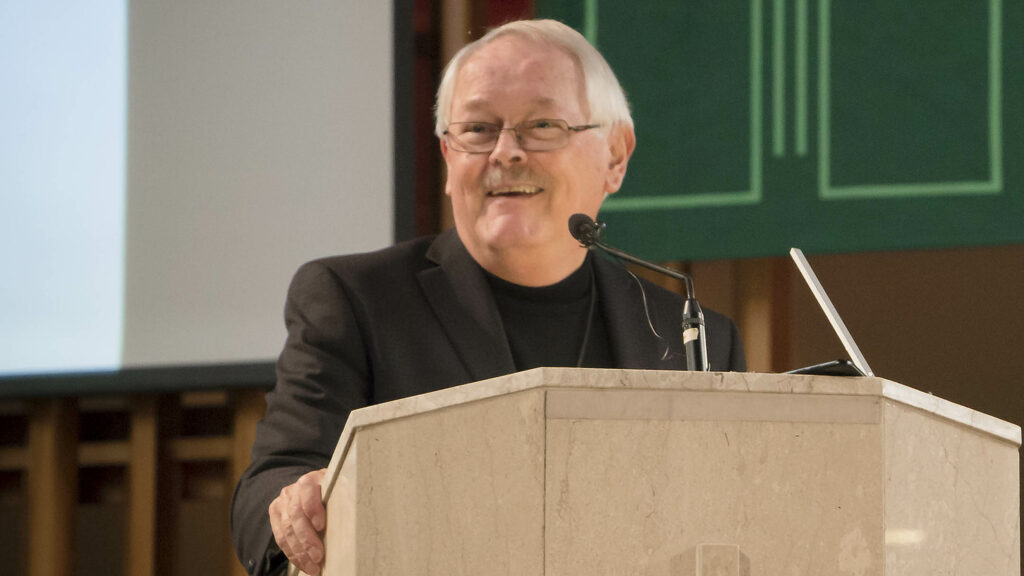“You can safely assume you’ve created God in your own image when it turns out that God hates all the same people you do.” – Anne Lamott
Those are words worth contemplating, on all sides of the political and religious divide today. We live in a time of bitter division. From our government offices down to our kitchen tables there are tensions and divisions about politics, religion, and versions of truth that seem irreparable. Sadly, these divisions have brought out the worst in us, in all of us. Common civility has broken down and brought with it something that effectively illustrates the biblical definition of the “diabolic” – widespread lack of common courtesy, disrespect, demonization and hatred of each other. All of us now smugly assume that God hates all the same people we do. The polarization around the recent USA elections, the storming of the USA Capitol buildings by a riotous mob, the bitter ethical and religious debates about abortion, and the loss of a common notion of truth, have made clear that incivility, hatred, disrespect, and different notions of truth rule the day.
Where do we go with that? I am a theologian and not a politician or social analyst so what I say here has more to do with living out Christian discipleship and basic human maturity than with any political response. Where do we go religiously with this?
Perhaps a helpful way to probe for a Christian response is to pose the question this way: what does it mean to love in a time like this? What does it mean to love in a time when people can no longer agree on what is true? How do we remain civil and respectful when it feels impossible to respect those who disagree with us?
In struggling for clarity with an issue so complex, sometimes it can be good to proceed via the Via Negativa, that is, by first asking what should we avoid doing. What should we not do today?
First, we should not bracket civility and legitimize disrespect and demonization; but we should also not be unhealthily passive, fearful that speaking our truth will upset others. We may not disregard truth and let lies and injustices lie comfortable and unexposed. It is too simple to say that there are good people on both sides in order to avoid having to make real adjudications vis-à-vis the truth. There are sincere people on both sides, but sincerity can also be very misguided. Lies and injustice need to be named. Finally, we must resist the subtle (almost impossible to resist) temptation to allow our righteousness morph into self-righteousness, one of pride’s most divisive modalities.
What do we need to do in the name of love? Fyodor Dostoevsky famously wrote that love is a harsh and fearful thing, and our first response should be to accept that. Love is a harsh thing and that harshness is not just the discomfort we feel when we confront others or find ourselves confronted by them. Love’s harshness is felt most acutely in the (almost indigestible) self-righteousness we have to swallow in order to rise to a higher level of maturity where we can accept that God loves those we hate just as much as God loves us – and those we hate are just as precious and important in God’s eyes as we are.
Once we accept this, then we can speak for truth and justice. Then truth can speak to power, to “alternative truth”, and to the denial of truth. That is the task. Lies must be exposed, and this needs to occur inside our political debates, inside our churches, and at our dinner tables. That struggle will sometimes call us beyond niceness (which can be its own mammoth struggle for sensitive persons). However, while we cannot always be nice, we can always be civil and respectful.
One of our contemporary prophetic figures, Daniel Berrigan, despite numerous arrests for civil disobedience, steadfastly affirmed that a prophet makes a vow of love, not of alienation. Hence, in our every attempt to defend truth, to speak for justice, and to speak truth to power, our dominant tone must be one of love, not anger or hatred. Moreover, whether we are acting in love or alienation will always be manifest – in our civility or lack of it. No matter our anger, love still has some non-negotiables, civility and respect. Whenever we find ourselves descending to adolescent name-calling, we can be sure we have fallen out of discipleship, out of prophecy, and out of what is best inside us.
Finally, how we will respond to the times remains a deeply personal thing. Not all of us are called to do the same thing. God has given each of us unique gifts and a unique calling; some are called to loud protest, others to quiet prophecy. However, we are all called to ask ourselves the same question: given what is happening, what is love asking of me now?

